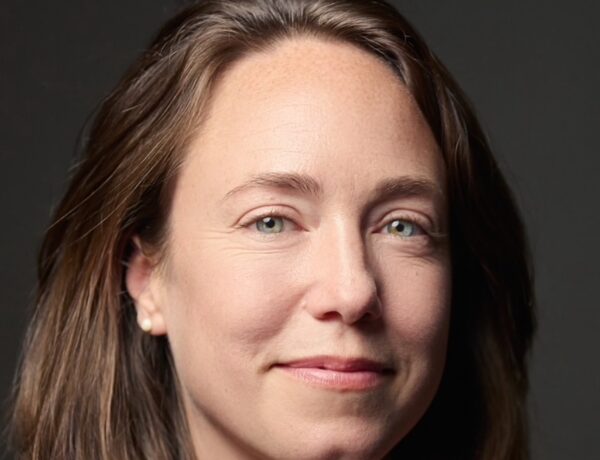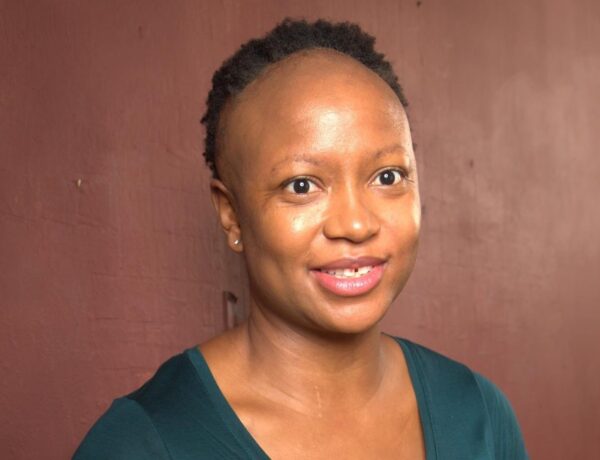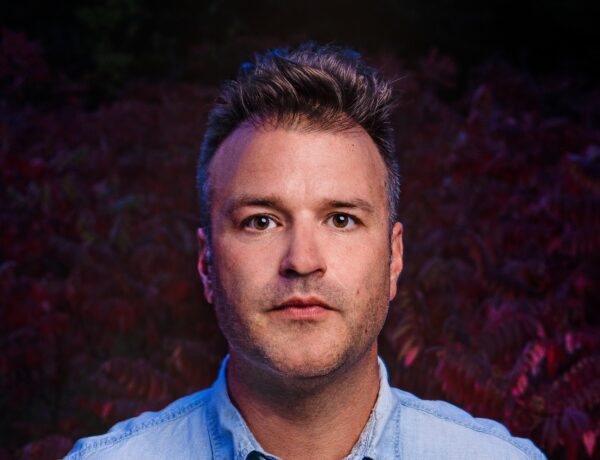Alice Elliott Dark is the author of the novels Fellowship Point and Think of England, and two collections of short stories, In The Gloaming and Naked to the Waist.
Her work has appeared in, among others, The New Yorker, Harper’s, DoubleTake, Ploughshares, A Public Space, Best American Short Stories, Prize Stories: The O.Henry Awards, and has been translated into many languages. “In the Gloaming,” a story, was chosen by John Updike for inclusion in The Best American Short Stories of The Century and was made into films by HBO and Trinity Playhouse.
Her non-fiction reviews and essays have appeared in The New York Times, The Washington Post, and many anthologies. She is a recipient of a fellowship from the National Endowment for the Arts and an Associate Professor at Rutgers-Newark in the English department and the MFA program.
Looking for inspiration to help you achieve your writing goals? Subscribe to our newsletter for exclusive insights into the routines, habits, and techniques of some of the most celebrated authors in history.
Hi Alice! We’re delighted to have you as a guest on Famous Writing Routines. Can you tell us about your journey as a writer? How did you get started and what have been some of the most memorable moments to date?
Thanks so much, I’m happy to be here. I am endlessly fascinated by people’s writing routines, and I’m constantly trying to enact a good routine. I’ll answer from where my thoughts are now.
I was a child writer. It wasn’t long after I began reading that I wanted to try to write a book myself. I loved how books made me feel, and I think I wanted to be more inside of that feeling. I imitated the books I like, and then I shifted to poetry, which was my focus until I was 28. Then I switched to fiction, which was a hard turn. It took me a while to learn a new form. I still write poetry but it’s a private pleasure.
Memorable moments…let’s see. I remember when my way of writing poetry busted open, and my voice got tough and personal. My teacher at the time hated it, which was pretty much the reason I stopped writing poetry. I couldn’t handle his shunning of me and my work. I remember when Betsy Lerner called me to tell me she was giving me a contract for a collection of stores and novellas, my first book, Naked to the Waist. I thought I had it made! That my career would from that moment be a straight ascent. Now I know it’s ups and downs, lots and lots of failures, and that the ascent is about personal satisfaction in the doing, not in the result.
I remember when I’d given up on writing altogether. I was at VCCA banging my head against the wall of a novel I couldn’t figure out, and I decided, I quit. I sat in a chair for five hours and looked out the window at cows moseying around a field. A man appeared in my mind who turned out to be Virgil Reed, a character in my recent novel, Fellowship Point. He was different than anything I’d ever thought of before, a creature purely of the imagination, and I knew a new project was underway.
Your books, Fellowship Point and Think of England, are novels, while your short story collections, In The Gloaming and Naked to the Waist, are focused on the short form. What draws you to each format and how does your approach differ when writing a novel versus a short story?
This is hard to be precise about, but it seems to me that an idea comes supplied with a form. Some ideas are stories, some poems, some novels, and many many many are passing notions. I have hundreds of beginnings, or paragraphs that belong nowhere.
I think stories are essentially about how people act in situations and novels are about the effect of time on a personality. I’m deeply interested in the question of how people change. It’s not easy. I knew Fellowship Point was going to be a long book because all three point of view characters were going to change, and for that to be believable I’d have to make strong cases.
If possible I like to draft a story in one sitting—a weekend set aside. When I am working on a novel I touch it every day until I finish a section, after which point I might step away for a while.
Your story “In the Gloaming” has been adapted into films by both HBO and Trinity Playhouse. Can you talk about that experience and what it was like to see your work come to life on the screen?
Well, I was naïve. I thought I understood that I was turning my baby over to a guardian I’d never met, but I didn’t know how that would feel. The Trinity Playhouse version was true to the story, and it was fun to hear my lines spoken aloud. When I first received the HBO script I got as far as the second page where I kept reading lines from a character named Danny. Who was this Danny? Danny was Laird, one of my two main characters. His name had been changed? Could they do that? There were other changes in the script from the story that embarrassed me, but the final show was quite touching and beautifully acted. I never really thought of it as seeing my work come to life, though. I see it vividly when I’m writing it.
As the recipient of a fellowship from the National Endowment for the Arts, can you talk about what that recognition meant to you and how it has impacted your writing career?
It was a great boost when it happened. I felt very outside of the swing of programs and fellowships, so that award was a powerful validation.
Discover the daily writing habits of authors like Stephen King, Neil Gaiman, and Gillian Flynn with Famous Writing Routines Vol. 1 and learn how to take your writing to the next level. Grab your copy today!
In addition to writing, you’re also the Associate Professor at Rutgers-Newark in the English department and the MFA program. How has teaching and working in academia impacted your own writing and creative process?
Teaching writing used to get in the way of my writing. I spent years working on how to be a good teacher and learning all about craft. That awareness combined with critiquing the writing of my students made me self-conscious when I sat down to write. It inhibited me because I knew where I was going wrong as I did. That was the downside, and I am well past that. The upsides are that I work in an excellent environment at Rutgers-Newark. I love the students. I value having the space to talk about books and writing in depth a few times a week.
What does a typical writing day look like for you? Do you have a specific time of day or place where you do your best writing?
I write first, which is the only way for me. I make coffee, feed indoor and outdoor cats, mediate, and then do one – two hours of work. I’m usually done by eight and then head into my day. If I’ve managed to clear my desk of tasks, which is rare, and I have the whole day to myself, I stay close to the work and go back and back in hopes of writing more. I usually do. My favorite thing is to be at a residency and truly have nothing else to do. It’s an intensely powerful situation. I think so much better under those circumstances.
Do you have any rituals or habits that help you get into a creative flow when writing?
The ritual is at the same place, with variations of singing scent in the form of a candle or a diffuser, reading a little, meditating, making a few notes ahead of time. If I’m feeling drab I go back to a method I learned from Louise De Salvo in her excellent book The Art of Slow Writing that involves writing down each bit I intend to work on, working on it, and moving onto the next one. This micro management really helps. Being worklike about it is calming.
I don’t ever get much flow—I’m extraordinarily distractible. But I am able to go to a deep place very quickly, so even if I am there for only ten minutes I can find something good. So much of getting it down is about knowing and accepting the self. I know, for example, that when I start wanting to get up, move around, check my email, it is time to stop. If I keep going I begin to judge the writing, which is poisonous.
How do you balance writing with your other commitments, such as teaching or other responsibilities?
I get the most writing done when I am on breaks from school. Otherwise it is very hard. Same when my son was at home. It’s not a coincidence that I wrote a big novel starting the year after my son moved out of the house. It didn’t work to cut my mind off from him, or to close the door. I worked around his schedule and that was a big limitation. The thing for me is to know that the most important thing in my inner life is writing, and that I put it as a priority in my plans. Of course I wish I didn’t have to work and that I could have afforded a housekeeper, but that’s the rare situation.
If you could have a conversation with an author throughout history about their writing routine and creative process, who would that person be?
Elena Ferrante. She has revealed a lot in her essays and writings, but I have questions! She has said she wrote The Neapolitan novel quickly, but what was the state of mind to manage so many patterns and motifs while writing fast? And can she turn that deep focus on and off?
I’d love to know about the books you’re reading at the moment. What have been some of your favorite reads?
I am mainly reading for work and for writing blurbs. I’m teaching the Neapolitan novels again so I’m rereading and seeing new things than before. I’m also back in my very old books about mysticism and spiritual autobiographies. I have a couple of hundred books on my TBR pile but I do a lot of rereading. Books I’ve loved that will be published soon are Commitment by Mona Simpson, Take What You Need by Idra Novey, Beyond that, The Sea by Laura Spence-Ash, and In the Garden by Eliza Minot. These all go in my permanent library.
What does your current writing workspace look like?
I have a large table up against a window in my bedroom. I just got a new computer which was life changing, but I find it gives me headaches. In that case I shift over to a chair and write by hand on a lap desk. I have my papers and books in another room—small house. I have a major dream of having a room of my own where I’ll build a desk all the way around the room and have stations for different projects that I can roll around on a good desk chair. I keep my projects in the bags so I can carry them downstairs if need be. Writing requires a lot of adaptation, and my life has made sure I know it.

Affiliate disclaimer: Some links on this website are affiliate links. We may earn a small commission if you make a purchase through these links, but only promote products we truly believe in. We disclose affiliate links and give honest reviews.



No Comments